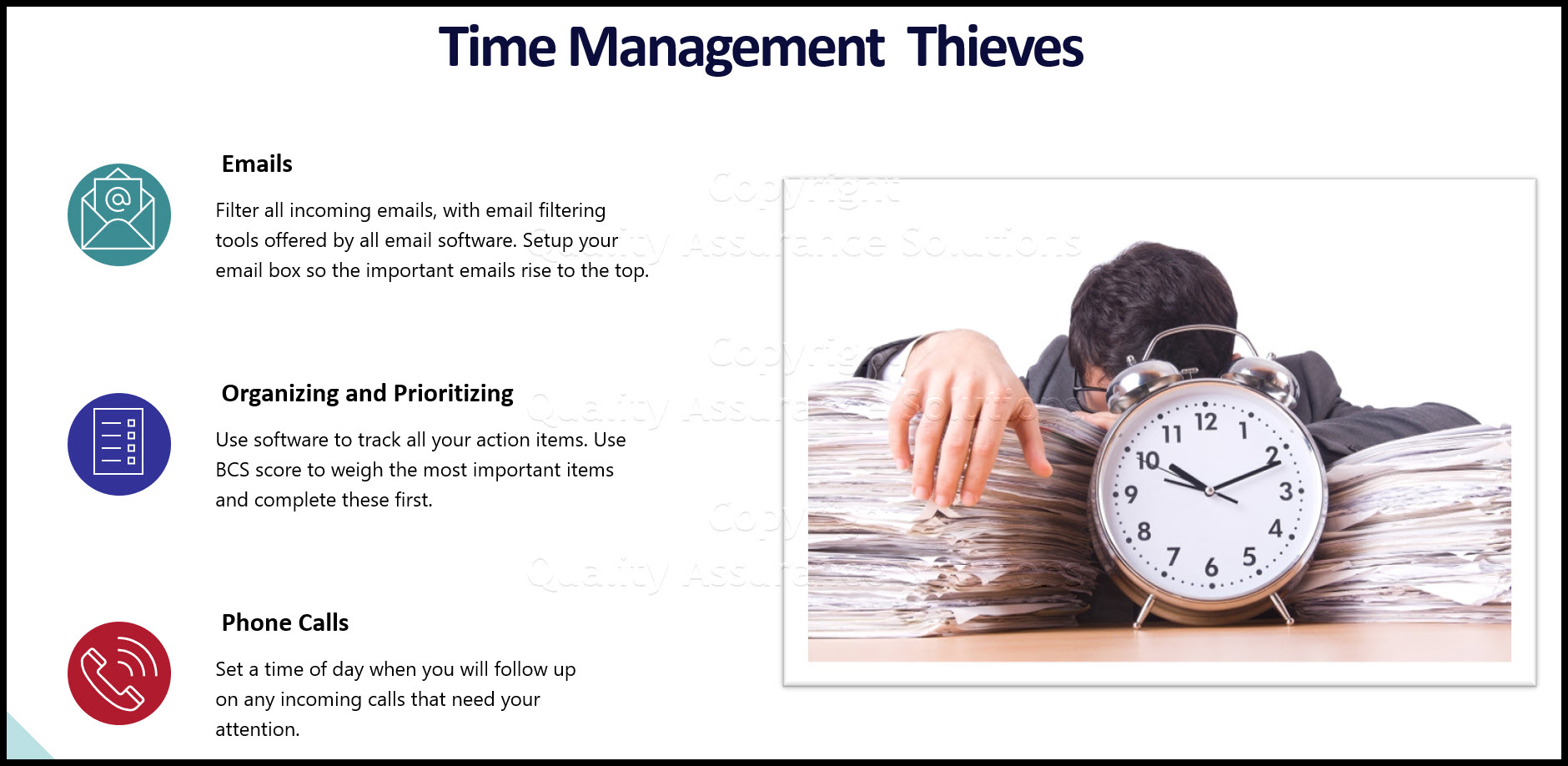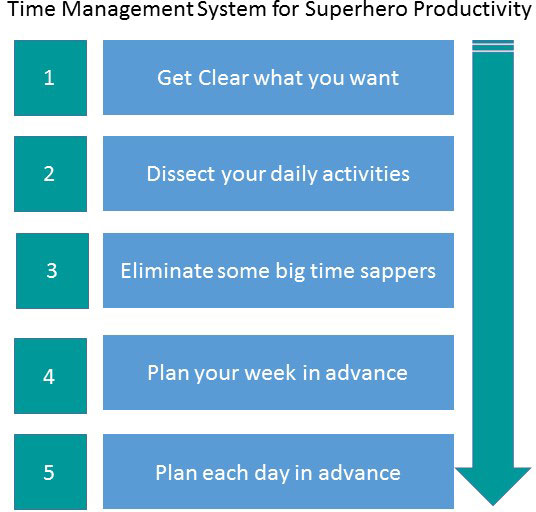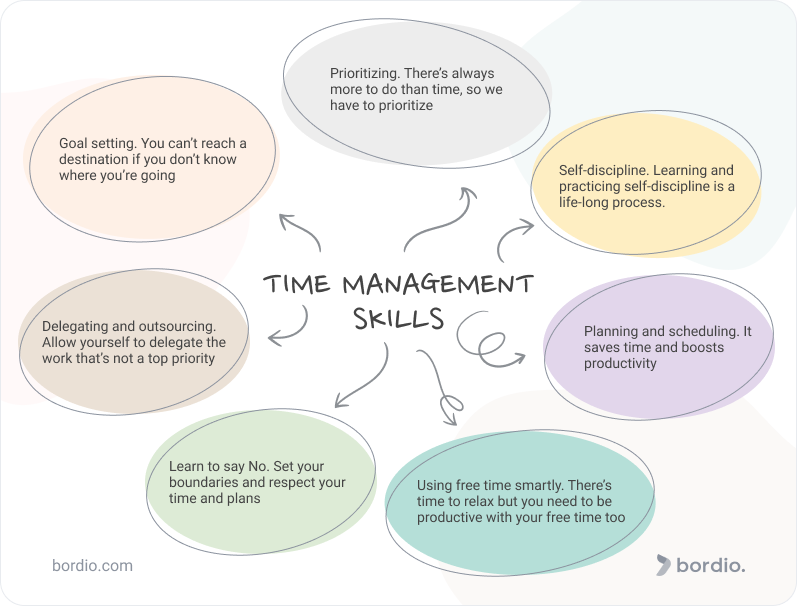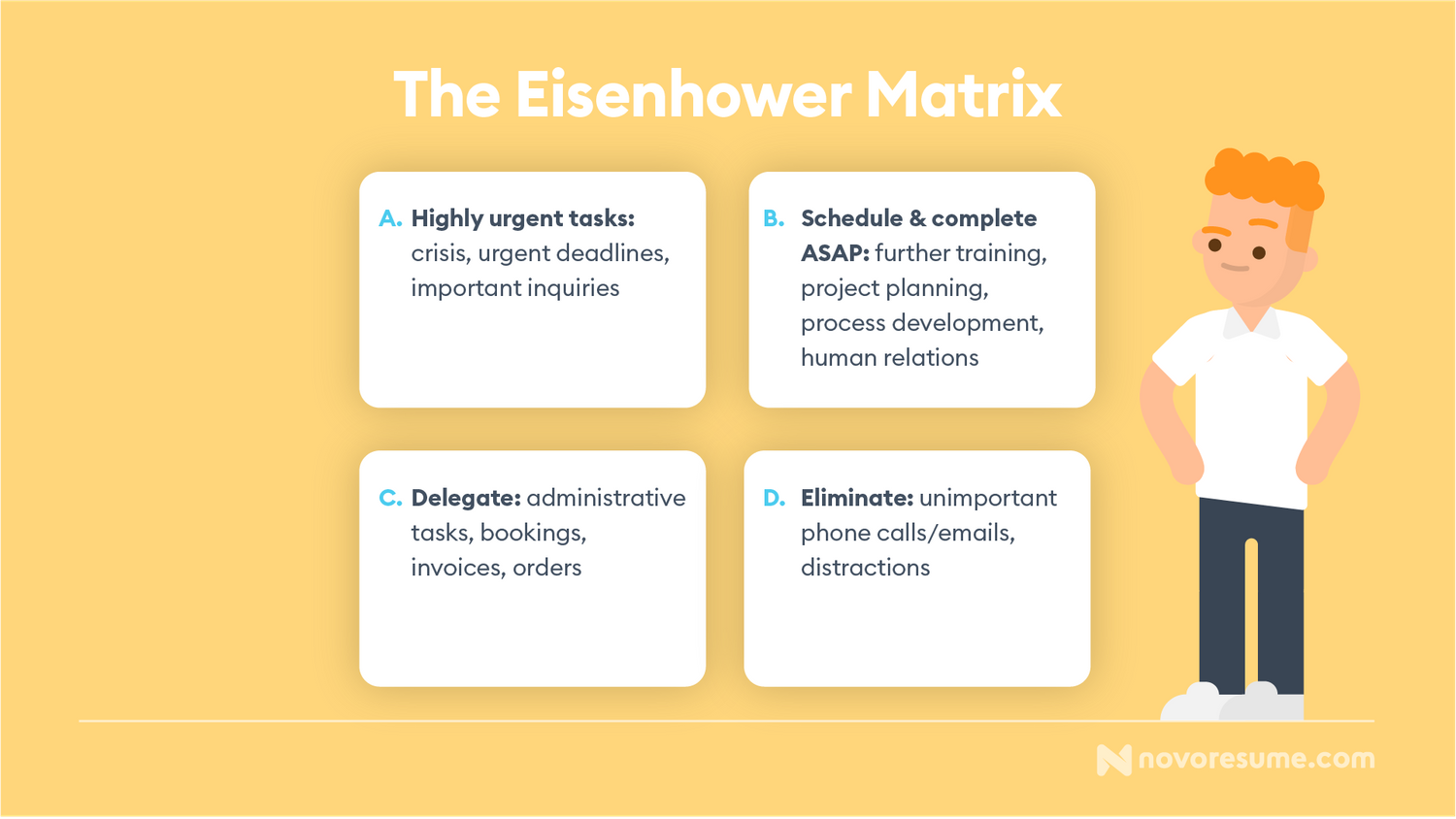How To Develop Time Management Skills
To develop time management skills, create a schedule and prioritize tasks based on importance and deadlines. Dedicate specific blocks of time for each task and minimize distractions to increase productivity.
Introduction (around 120 words): Effective time management is essential for success in both personal and professional spheres. As the old saying goes, “Time is money,” so learning how to make the most of your time can significantly impact your productivity and overall quality of life.
However, in today’s fast-paced world, with numerous distractions and demands vying for our attention, managing time efficiently can be challenging. Fortunately, by following a few simple strategies and implementing disciplined habits, one can develop effective time management skills. This article will guide you through various techniques and practical tips to optimize your time, enhance productivity, and achieve a balanced lifestyle. So, let’s dive in and unlock the secrets to mastering time management, enabling you to work smart, accomplish more, and ultimately achieve your goals.

Credit: www.quality-assurance-solutions.com
Understanding Time Management Skills
Developing effective time management skills is crucial for maximizing productivity and achieving personal and professional goals. By understanding the importance of prioritization, setting realistic deadlines, and utilizing effective techniques, individuals can improve their time management abilities and accomplish tasks efficiently.
Identifying The Importance Of Time Management
Time management is crucial in our fast-paced modern lives. It is the art of arranging our tasks and activities effectively to make the most of the limited time we have. By mastering time management skills, we have the power to prioritize tasks, minimize distractions, and achieve our goals efficiently. When we prioritize and organize our time effectively, we are able to increase productivity, reduce stress levels, and have a better work-life balance. Time management also allows us to stay focused and motivated, ensuring that we make the most of every moment and accomplish our tasks with excellence.Recognizing The Impact Of Poor Time Management
The consequences of poor time management can be detrimental to both our personal and professional lives. When we fail to manage our time effectively, we often find ourselves overwhelmed by deadlines, stressed, and unproductive. This can lead to missed opportunities, lower quality work, and a decrease in overall performance. Poor time management can also negatively impact our relationships, as we might constantly feel rushed or unable to make time for loved ones. Recognizing the impact of poor time management is essential as it motivates us to develop and improve this crucial skill.Setting Smart Goals
One of the key elements in developing effective time management skills is setting SMART goals. SMART stands for Specific, Measurable, Achievable, Relevant, and Time-bound. By following this framework, you can transform vague ambitions into concrete objectives that are easier to track and accomplish.
Defining Smart Goals
When it comes to setting goals, being specific is essential. Rather than setting a general goal like “improve time management,” it is better to define precisely what you want to achieve. For example, a specific goal could be “reduce time spent on social media to 30 minutes per day.”
The second element of SMART goals is measurability. Having a clear metric facilitates tracking progress and evaluating results. In the above example, the measurable aspect is the 30 minutes per day time limit for using social media.
The achievable aspect of SMART goals is crucial to ensure realistic and attainable targets. Setting goals that are too lofty can lead to frustration and demotivation. However, aiming for small, manageable changes can gradually improve your time management skills.
Relevance is the next factor to consider when setting SMART goals. Your objectives should align with your overall priorities, helping you move closer to your desired outcomes. Evaluating whether a goal contributes to your long-term growth and success is important in maintaining focus and motivation.
The final aspect of SMART goals is being time-bound. Assigning a specific timeframe to your goals adds urgency and helps prioritize tasks. By setting deadlines, you create a sense of accountability and prevent procrastination.
Understanding The Benefits Of Setting Smart Goals
Setting SMART goals offers various advantages that can enhance your time management skills. By clearly defining your objectives, you gain clarity and direction, eliminating confusion or ambiguity.
With measurable goals, you can track your progress and make adjustments as needed. This constant evaluation allows you to identify areas for improvement and find strategies that work best for you.
Additionally, setting achievable goals helps build confidence and motivation. When you consistently achieve your targets, no matter how small, you reinforce positive habits and strengthen your belief in your abilities.
The relevance of SMART goals ensures that your activities align with your values and priorities. By focusing on what truly matters, you optimize your time and energy, moving closer to your desired outcomes.
Moreover, by assigning specific timeframes, you create a sense of urgency and prevent procrastination. Deadlines act as motivators and spur you into action, helping you develop a proactive approach to time management.
In conclusion, setting SMART goals is a powerful strategy to develop effective time management skills. This framework enables you to clarify your objectives, measure progress, and stay focused on what truly matters. By embracing SMART goals, you can make significant strides towards mastering your time and achieving your goals.
Prioritizing Tasks
The ability to prioritize tasks is a crucial skill that helps you work efficiently and effectively. When you prioritize tasks, you ensure that you focus your time and energy on the most important and urgent ones. This not only helps you meet deadlines but also reduces stress and improves productivity.
Identifying High-priority Tasks
To prioritize effectively, start by identifying high-priority tasks. These are the tasks that have the greatest impact on your goals, projects, or deadlines. One way to identify them is by evaluating their urgency and importance. Consider the following:
- Urgency: Tasks that have approaching deadlines or require immediate attention should be given higher priority.
- Importance: Tasks that have a significant impact on your goals or projects should also receive higher priority.
- Potential consequences: Tasks that have severe consequences if not completed should be prioritized accordingly.
By evaluating these factors, you can easily identify the tasks that deserve your immediate attention and focus.
Using Time Management Tools To Prioritize Tasks
Once you have identified high-priority tasks, you can use various time management tools to effectively prioritize them. These tools help you organize, track, and allocate your time in a way that best suits your needs. Consider the following:
- Task management apps: Utilize apps like Todoist, Trello, or Asana to create task lists, set deadlines, and categorize tasks based on priority.
- Time blocking: Allocate specific time blocks for different tasks, ensuring that high-priority tasks receive sufficient time and attention.
- Prioritization matrices: Use tools like Eisenhower Matrix or ABC analysis to visually prioritize tasks based on their urgency and importance.
These time management tools provide structure and clarity to your task list, making it easier for you to focus on what matters most.

Credit: www.educational-business-articles.com
Creating Effective Time Management Strategies
Developing effective time management strategies is crucial for improving productivity and achieving success. By prioritizing tasks, setting realistic goals, and avoiding distractions, individuals can enhance their time management skills and accomplish more in their daily lives.
Creating Effective Time Management Strategies is crucial for individuals looking to improve their productivity and overall work-life balance. By implementing these strategies, you can break tasks into manageable chunks, create a daily and weekly schedule, and optimize your time management skills to accomplish more in less time. Breaking Tasks into Manageable Chunks One of the key strategies in effective time management is breaking tasks into manageable chunks. When faced with a large project or a series of tasks, it can be overwhelming to tackle everything at once. Instead, focus on breaking down the tasks into smaller, more manageable parts that can be completed in a shorter amount of time. By breaking tasks into smaller chunks, you can easily prioritize and allocate your time accordingly. This allows you to focus on one task at a time, which enhances your concentration and productivity. To do this, consider the following steps: – Identify the main objective of the task and its related subtasks. – Estimate the time needed to complete each subtask. – Prioritize the subtasks based on their importance and urgency. – Allocate specific time slots for each subtask, ensuring that you have realistic expectations. Creating a visual representation of your task breakdown, such as a table or a bullet-point list, can be helpful in keeping track of your progress and staying organized throughout the process. Creating a Daily and Weekly Schedule Another effective time management strategy is creating a daily and weekly schedule. This allows you to plan and prioritize your activities, ensuring that you allocate your time effectively. Start with a weekly overview, listing all the tasks and responsibilities you need to accomplish. Then, break down these tasks into daily schedules, allocating specific time slots for each task. By doing so, you can avoid the temptation to multitask and remain focused on the task at hand. To create an effective schedule, consider the following tips: – Prioritize your tasks based on their importance and deadline. – Allocate specific time slots for each task, considering your natural energy levels and peak productivity times. – Avoid overloading your schedule and allow for buffer time between tasks to accommodate unexpected events or necessary breaks. – Review and adjust your schedule as needed, ensuring that it remains flexible and adaptable to changes. Remember, while having a schedule is important, it is crucial to also allow for some flexibility to accommodate unforeseen circumstances or emergencies. In conclusion, the key to developing effective time management skills lies in creating strategies that work for you. By breaking tasks into manageable chunks and creating a daily and weekly schedule, you can optimize your time management and achieve greater productivity and success in your personal and professional life.Overcoming Procrastination
Learn how to conquer procrastination and enhance your time management skills with practical strategies and effective techniques. Develop a focused mindset, prioritize tasks, and stay organized to optimize productivity and achieve your goals efficiently.
Overcoming Procrastination Understanding the Root Causes of Procrastination Procrastination can be a significant obstacle when it comes to effective time management. It is the art of putting off tasks or delaying important commitments until the last minute. This habit can be detrimental, leading to stress, missed deadlines, and a decreased sense of productivity. In order to develop strong time management skills, it is crucial to first understand the root causes of procrastination. One of the primary causes of procrastination is a lack of motivation. When tasks seem overwhelming or uninteresting, it is natural for us to avoid them. Feeling uninspired or not seeing the immediate benefits of completing a task can lead to delays and procrastination. Additionally, fear of failure or perfectionism can also contribute to our tendency to put off tasks. The fear of not meeting expectations or making mistakes can be paralyzing, causing us to procrastinate rather than face these challenges head-on. Utilizing Strategies to Overcome Procrastination Once we have a clear understanding of the root causes of procrastination, we can implement effective strategies to overcome it. Here are some practical techniques to help you combat procrastination: 1. Set Clear Goals: Break down larger tasks into smaller, more manageable ones. This way, you can focus on completing one step at a time, making the task less overwhelming. Set specific and realistic deadlines for each subtask to keep yourself accountable. 2. Prioritize Tasks: Create a priority list and identify the most important tasks that need your immediate attention. By focusing on high-priority tasks first, you can prevent yourself from getting distracted or overwhelmed by less important tasks. 3. Create a Schedule: Develop a daily or weekly schedule that allocates specific blocks of time for each task. Assigning dedicated time slots for different activities can help you stay organized and motivated to complete them in a timely manner. 4. Remove Distractions: Identify and eliminate any potential distractions that may hinder your productivity. Put your phone on silent, close unnecessary browser tabs, and find a quiet workspace to minimize interruptions. 5. Practice the “Five-Minute Rule”: If you find yourself procrastinating on a task, commit to working on it for just five minutes. Often, getting started is the hardest part. Once you overcome that initial resistance, you may find yourself motivated to continue working on the task. 6. Break tasks into smaller, more manageable chunks: Instead of viewing tasks as daunting and overwhelming, break them down into smaller, more achievable steps. This way, you can experience a sense of progress as you complete each step, which can boost your motivation to continue working. 7. Reward Yourself: Implementing a reward system can be a powerful motivator. After completing a task or reaching a milestone, give yourself a small reward. It could be as simple as taking a short break, treating yourself to a favorite snack, or engaging in a leisure activity. These rewards can provide a sense of accomplishment and incentivize you to stay on track. By understanding the root causes of procrastination and implementing effective strategies, you can overcome this habit and develop strong time management skills. Remember, consistency and persistence are key. With practice and determination, you can overcome procrastination and achieve greater productivity in your personal and professional life.
Credit: bordio.com
Frequently Asked Questions For How To Develop Time Management Skills
How Can I Improve My Time Management Skills?
Developing time management skills requires prioritizing tasks, setting goals, and creating a schedule to maximize productivity.
Why Is Time Management Important?
Effective time management helps reduce stress, increases productivity, improves focus, and allows for better work-life balance.
What Are Some Practical Tips For Managing Time Effectively?
Some practical tips include setting deadlines, breaking tasks into smaller manageable chunks, delegating tasks, and minimizing distractions.
Conclusion
Mastering time management skills is essential in today’s fast-paced world. By following practical strategies like setting clear goals, prioritizing tasks, and eliminating distractions, you can effectively manage your time. Remember to create a schedule that allows for breaks and relaxation, as this promotes productivity and reduces stress.
Consistency and discipline are key factors in developing strong time management skills. With determination and practice, you can make the most of your time and achieve your goals. Embrace these techniques and witness the positive impact they will have on your personal and professional life.




